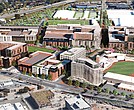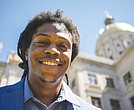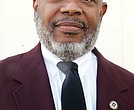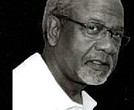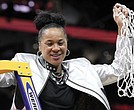COVID-19 brings adjustments to area colleges
George Copeland Jr. | 8/13/2020, 6 p.m.
Richmond area colleges and universities plan to step up sanitation measures and reduce campus populations by turning to more online classes in dealing with coronavirus as the fall semester begins.
Following a spring semester and summer derailed by COVID-19, students and faculty at Virginia Union University, Virginia State University, Virginia Commonwealth University and J. Sargeant Reynolds Community College are adjusting to the changes the virus has thrust on all aspects of college life, from learning to housing, dining and social activities.
“The health and safety of our students and our staff and faculty is our No. 1 priority,” said Joe Schilling, director of communications at Reynolds. “We’re not trying to just bring everybody back and throw the doors open without making sure everyone is going to be able to come in safely and comfortably.”
In addition to increased cleaning and sanitation practices, most schools are reducing the number of students on campus because of physical distancing requirements as well as reducing in-person classes by expanding online services. The ratio of in-person to online courses vary across universities.
Reynolds stated it will prioritize online instruction, with allowances for “performance-based” courses like culinary arts and welding.
At VCU, some classes may require students to alternate in-person attendance when classes start on Aug. 17. Other courses may be blended, conducted both in-person and online.
VUU has reduced classroom occupancy by 50 percent for its courses. Virtual learning is available for all courses for students who feel safer not returning to campus. There also is a plan to transition all campus-based learning to virtual instruction starting Nov. 21.
VSU, meanwhile, is limiting in-person instruction to freshmen, seniors, commuting students, student-athletes and leaders.
With the changes in instruction methods, students and faculty should expect more resources to aid in on-line learning and greater flexibility. Face-to-face instruction at all of the institutions will feature requirements for physical distancing, face masks and coverings for students and professors and increased cleaning and disinfection of shared spaces.
VSU, VUU and VCU also will provide kits to students and staff that include masks, hand sanitizer and other items to assist with their health and safety.
As for campus housing, VCU and VSU are increasing sanitation measures for dorms and residence halls, while limiting guests and visitors to mitigate the chances of community spread of COVID-19.
VUU also has increased the number of single spaces in its residence halls by 35 percent. Officials said that 80 percent of housing will be for single occupants, while the largest rooms will be used for two occupants.
Students and faculty on campus at VSU, VUU, VCU and Reynolds will be required to take a test for COVID-19 prior to or upon arrival.
VCU also announced plans to set aside its Honors College residence hall to be used by VCU Health System to house low acuity COVID-19 patients among the student body. VUU, VSU and Reynolds are partnering with the Virginia Department of Health to ensure best practices regarding COVID-19 screening, testing and contact tracing.
Students and faculty at all four institutions also will see limitations, closings and distancing requirements for shared spaces such as libraries, lounges, the commons and meeting areas.
Dining halls also will be impacted, with VSU and VCU opting to use take-out options over in-person dining. VSU and VUU are preparing a low-density dining model with limited choices and physical distancing.
While the semester outlines provided by VCU, VUU, VSU and Reynolds are extensive, all may be subject to change depending on any surge in COVID-19 cases on campus, in the state or on the national level.
Nearly 100 VCU faculty members are calling for the university’s fall semester to be handled remotely, except for courses where in-person learning is absolutely necessary. While VSU’s online or remote classes begin Aug. 17, the university has delayed the start of in-person courses until Sept. 14.
“We cannot, in good conscience, put your health and safety in jeopardy by allowing you to return to campus in August while COVID-19 numbers are on the rise,” VSU President Makola M. Abdullah said in a statement to students, staff and faculty. “We understand this change may present some challenges, and we are committed to providing guidance and support to you as we continue through this transition.”
That transition has proven to be an ongoing work in progress for all of the institutions. VSU has continued to update its “Forward in Fall 2020” web page with new information since its June debut, while VCU held meetings with faculty members and students a few weeks earlier to discuss the guidelines developed so far.
Reynolds, according to Mr. Schilling, is working on contingency plans to move all courses online if and when COVID-19 proves too dangerous for in-person instruction, and VUU has stressed the fluid nature of its approach to its reopening plan.



